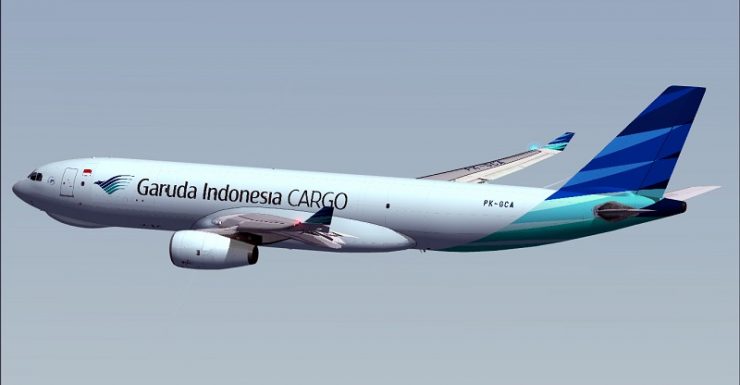PT GARUDA Indonesia Tbk (GIAA) continues to optimize the cargo transportation segment to date. The cargo transportation segment is a business line that contributes to strengthening GIAA’s business income.
According to the Main Director of GIAA, Irfan Setiaputra said we continue to carry out this strengthening by looking at the potential and demand for the logistics industry which is still promising in the future, especially regarding the need for a direct cargo delivery network in Indonesia.
However, he did not deny that the end of the pandemic phase in Indonesia had brought changes to community activities. From online activities, people are returning to mobility, including the trend for people to return to traveling activities.
According to him, the change, aka shifting, of the aviation market, which during the pandemic relied on cargo market share, is now starting to shift back towards passenger transportation.
“With the various opportunities and cargo market share that exist in Indonesia, we are certainly optimistic that we can maximize the portion of cargo revenue in the pre-pandemic period, which was in the range of 10-15% of Garuda Indonesia’s total revenue,” said Irfan.
For information, GIAA posted operating revenues of US$1.39 billion in the first semester of 2023. This revenue grew 58.85% on an annual basis from US$878.69 million in the first semester of 2022. The contribution of scheduled flight tickets dominated at US$1.01 billion, followed by cargo and documents totaling US$83.46 million.
The contribution of Hajj and charter flights reached US$142.45 million, an increase from the first half of last year at US$87.57 million. Other businesses including aircraft maintenance, travel agencies, catering services, hotels and transportation generated revenues of US$151.37 million, up from the previous US$113.83 million.
Garuda Indonesia’s net loss was able to shrink 30.59% on an annual basis from US$110.03 million as of June 2022 to US$76.39 million by the end of June 2023. Currently, Garuda Indonesia continues to develop its cargo business line through transportation on regular domestic and international flights via the main hubs are Jakarta and Denpasar.
Irfan explained that the cargo market in Indonesia still has the potential to continue to be developed both in terms of the flight network and the amount of cargo that can be carried on each flight. This is because Indonesia is seen as the largest archipelagic country in the world.
Meanwhile, in responding to the current tight competition in the cargo industry, Garuda Indonesia says it has advantages in terms of on-time schedule products, connected domestic and international flights.
Not only that, Irfan said that his party has a variety of special sales channel services to accommodate the needs of service users. This potential will continue to be developed by GIAA in the future.
To strengthen the cargo business line, Garuda Indonesia is collaborating to provide safe and integrated cargo flight services. Things he has done include collaborating with Citilink to provide capacity management on one platform, to developing door-to-door business services through the Aero Jasa Cargo (AJC) business line, namely SendAja.
“In general, the movement of tariff trends at Garuda Indonesia is relatively stable. We continue to study and evaluate this by looking at commercial approaches and strategies that can be optimized to maximize cargo market share,” Irfan remarked.
Apart from that, Garuda Indonesia will also continue to optimize cargo services with special handling such as live animals, perishable goods (superior commodities), automotive cargo, and many more amidst various international events held in Indonesia. [sources/photo special]
















